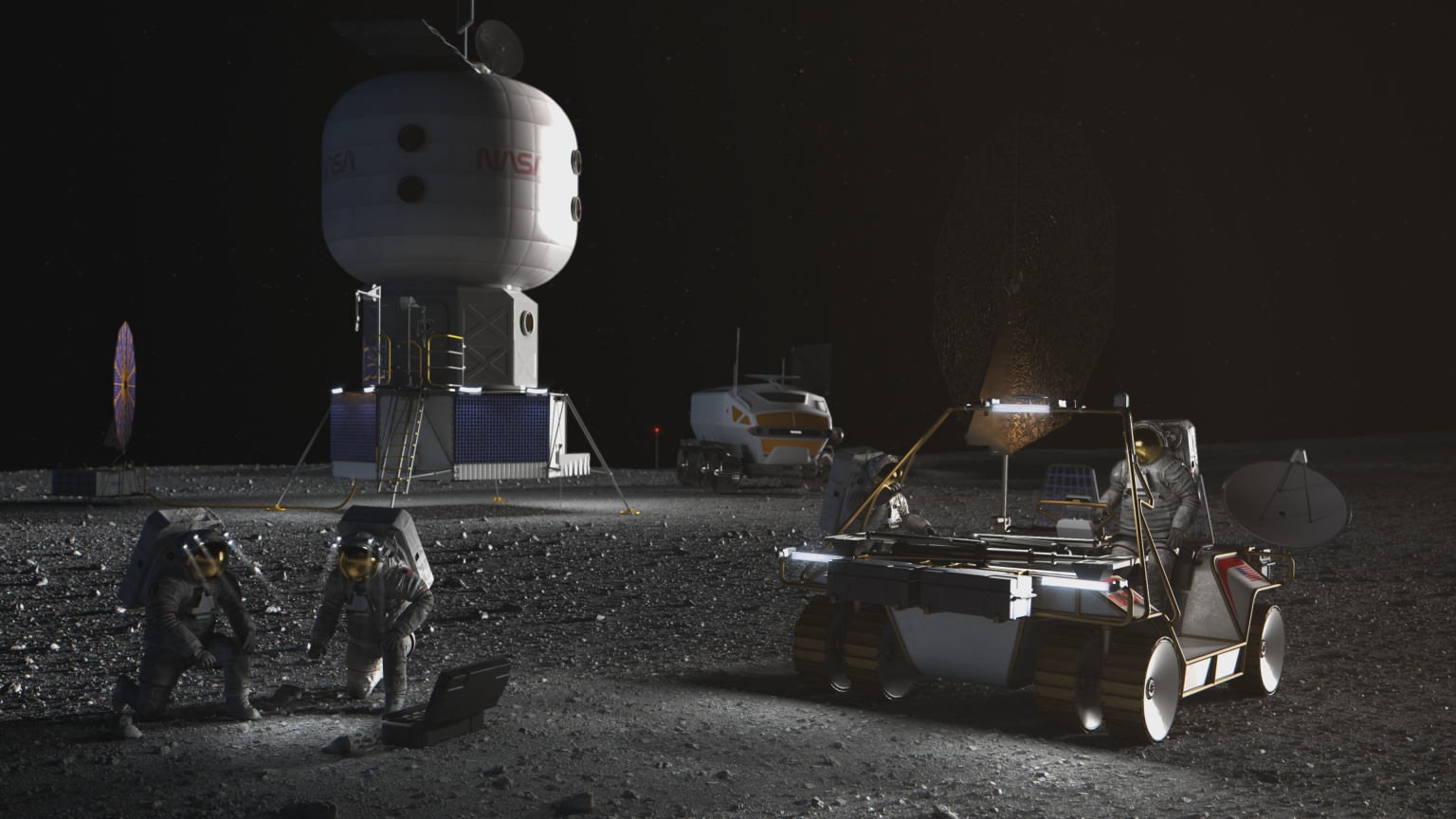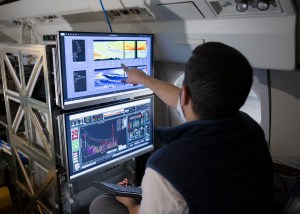In its 23rd year, NASA’s Revolutionary Aerospace Systems Concepts – Academic Linkage (RASC-AL) competition announces a call for proposals for the collegiate community to explore innovative ways the agency can improve its ability to operate on the Moon, Mars and beyond.
The 2024 RASC-AL Competition invites teams of undergraduate and graduate students to propose innovative solutions to one of four themes ranging from developing large-scale lunar surface architectures enabling long-term off-world habitation, to designing new systems that leverage in-situ resources for in-space travel and exploration. Teams can choose to propose to one of the following themes:
- Long Duration Mars Simulation at the Moon: Develop an architecture for a long duration simulation of a human mission to Mars conducted at the Moon.
- Sustained Lunar Evolution: Develop an architecture for evolving human presence on the Moon to expand available services and commodities.
- AI-Powered Self Replicating Probes – an Evolutionary Approach: Develop a concept for an autonomous spacecraft that increases its mission capabilities via resources it gathers as it visits multiple low gravity bodies in the solar system.
- Large Scale Lunar Crater Prospector: Develop a concept for a prospecting rover that can operate for long durations in craters at the lunar south pole.
In addition to their research, teams are also highly encouraged to develop a prototype of part or all of their concept to demonstrate its key functions. Interested undergraduate and graduate university student teams and their faculty advisors should submit a Notice of Intent by October 11, 2023, and submit proposals and videos by March 7, 2024.
New this year, RASC-AL teams based in the United States are encouraged to work with universities from any of the other twenty-six countries who have signed the Artemis Accords a set of principles designed to guide civil space exploration and use in the 21st century.
Based on review of the team proposal and video submissions in March, up to 14 teams will be selected to advance to the final phase of the competition – presenting their concepts to a panel of NASA and industry judges in a competitive design review at the 2024 RASC-AL Forum in Cocoa Beach, Florida next June.
“This is so much more than just an engineering design challenge,” said Pat Troutman, Human Exploration Strategic Analysis Lead at NASA’s Langley Research Center. “RASC-AL engages students in designing the future of space exploration, and gives them access to NASA and industry pipeline opportunities. Participants gain real-world experience through collaborative research, and NASA gains innovative, revolutionary ideas from the next generation of aerospace engineers.”
Each finalist team will receive a $6,500 stipend to facilitate their full participation in the 2024 RASC-AL Competition. The top two overall teams will be awarded with additional travel stipends to present their concept at an aerospace conference in 2024.
RASC-AL is open to undergraduate and graduate students studying disciplines related to human space exploration, including aerospace, bio-medical, electrical, and mechanical engineering, and life, physical, and computer sciences. RASC-AL projects allow students to incorporate their coursework into space exploration objectives in a team environment and helps bridge strategic knowledge gaps associated with NASA’s vision. Participating students have the opportunity to interact with NASA officials and industry experts and develop relationships that could lead to participation in other NASA student research programs.
RASC-AL is sponsored by the Moon to Mars Architecture Development Office within the Exploration Systems Development Mission Directorate at NASA Headquarters and by the Space Mission Analysis Branch at NASA’s Langley Research Center. It is administered by the National Institute of Aerospace.
For more information about the RASC-AL competition, including complete theme and submission guidelines, visit: http://rascal.nianet.org




























